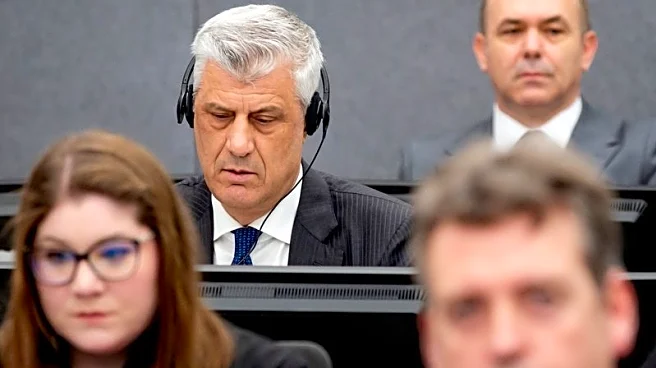What's Happening?
Conan O'Brien has expressed confidence in Stephen Colbert's continued presence in the entertainment industry despite the cancellation of 'The Late Show with Stephen Colbert.' During his induction into the Television Academy Hall of Fame, O'Brien praised Colbert as 'too talented and too essential' to disappear from the late-night television landscape. Paramount's decision to cancel the show follows a $16 million settlement with President Trump, which has been criticized by some lawmakers as potential bribery. CBS's Chair of TV Media, George Cheeks, cited economic challenges as a reason for the show's cancellation, while Jeff Shell, president of Paramount, supported the decision, noting the difficulty of making late-night television economically viable.
Why It's Important?
The cancellation of 'The Late Show with Stephen Colbert' marks a significant shift in the late-night television industry, highlighting the economic pressures facing traditional media formats. Colbert's ongoing jokes about President Trump and the subsequent settlement have added a political dimension to the show's demise. The decision reflects broader challenges in the industry, as networks struggle to adapt to changing viewer habits and financial constraints. The potential disappearance of late-night television as it has been known since the 1950s could lead to a reevaluation of how comedic and political commentary is delivered to audiences.
What's Next?
Stephen Colbert has begun exploring new opportunities, signaling his availability for roles with streaming platforms like Netflix and Amazon. This move suggests a potential shift in the late-night format towards digital platforms, which may offer more sustainable economic models. As Colbert transitions from CBS, the industry may see increased competition among streaming services to secure high-profile talent, potentially reshaping the landscape of comedic and political commentary.
Beyond the Headlines
The cancellation of 'The Late Show' raises questions about the future of political satire and its role in public discourse. As traditional late-night formats face economic challenges, the industry may need to innovate to maintain its influence on political and cultural conversations. The shift towards streaming platforms could democratize access to content, allowing for more diverse voices and perspectives to emerge in the comedic space.











